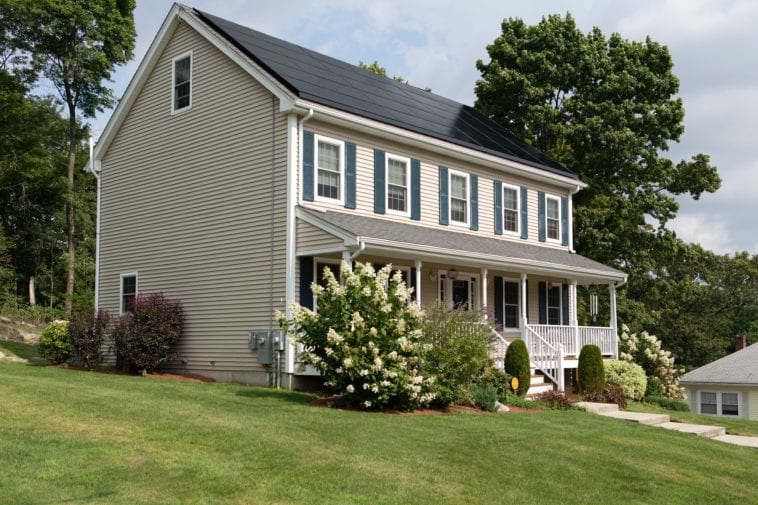Our homes provide all of our greatest comforts, including delicious meals, restful sleep, and a nice place to grow, relax, and entertain. Houses work hard to keep us safe and comfortable, and these efforts can take a significant amount of energy.
If we just consider our food, we use refrigerators to keep fresh food-safe, lighting to help us see our preparations, hot water to wash our dishes, and stoves, ovens, and microwaves to heat our food. That’s several appliances using energy for a single meal.
Almost every action in our homes uses energy, and it’s important to learn how to conserve energy through our habits and home upgrades. The best energy-efficient homes start from the ground up and are built with sustainable materials and practices. However, that doesn’t mean you can’t make your home more energy-efficient.
We’ve gathered easy upgrades and daily habits you can do to make your home more efficient.
Energy Upgrades for Your Home
Your appliances and even interior decor may impact your home’s energy use and conservation. Here are some key upgrades that may benefit your home.
Invest in Energy-Star Features
Many of us are familiar with Energy-Star, the EPA certification that an appliance meets their threshold for energy efficiency. Energy-Star certifications apply to appliances like your dishwasher, as well as other home features like windows.
Consider upgrades to an energy-efficient appliance next time you’re due for an upgrade. If you want a headstart on upgrading your home, start with the appliances that use the most energy. Clothes dryers, heating and cooling systems, and water heaters are all great starting places.
Upgrade Your Water Features
Reducing water waste is another key feature for an eco-friendly home. Start with your water heater and consider upgrading to a tankless option. Tankless water heaters warm water as you need it, saving energy and water.
Low flow toilets and showerheads, and high-efficiency appliances like washing machines, can all help conserve water without impacting your lifestyle.
Install Reflective Curtains or Blinds
One of the easiest changes you can make is installing blackout curtains or blinds in your windows. Energy from the sun can heat your home through windows, straining your heating and cooling system and wasting energy.
Window covers can block the energy from entering your home and keep rooms more comfortable. Thermal curtains and blinds come in several colors and designs, so you don’t have to sacrifice natural light or style to reduce your energy consumption.
Check for Air Leaks and Damaged Doorways
Draft windows and crooked doors leave gaps in your home for air to circulate. This means that all of the energy from your heating and cooling system may be literally going out the door.
The good news is that these are usually easy fixes. Test all of your external windows and doors to make sure they open and close properly. Fill and gaps in the frame or due to poor fit with weather stripping or caulk. If you have a major repair, consider replacing the window or door with a new energy-efficient model.
Swap Your Grass for a Garden
Your weekly mowing chore can drain your and your mower’s energy, consuming gas and releasing that waste through the exhaust. A thriving green lawn also consumes a lot of water and you may even use herbicides to keep weeds at bay.
There are plenty of beautiful alternatives to a grass lawn, including clover, moss, and native wildflowers. These are easy to grow in most climates and provide local pollinators with food. If you have a green thumb, you can transform your lawn with edible plants, flowers, fruits, and veggies.
Light Your Home with LEDs
LED lights last longer and use significantly less lighting than incandescent bulbs do. If you haven’t already, make the change to LED lights to save energy and buy fewer lightbulbs.
Smart lighting features like dimmers, timers, and mobile controls can also conserve energy in your home. You’ll never accidentally leave a light on while you’re away on vacation, and you can program your schedule to automatically use lights only when you need them.
Home Habits for Conservation
You don’t have to invest thousands of dollars to conserve energy at home. The best place to start your eco-friendly journey is with your own daily habits
Unplug Unused Appliances
Standby is a common feature in many entertainment electronics have, including your computer, television, and gaming consoles. These devices stay on unless they’re powered all the way down, using energy throughout the day.
Even devices without standby mode use drain power when they’re plugged in. Physically unplugging all of your appliances when they’re not in use is the best way to prevent this casual energy drain. You can also use surge protectors to easily switch power on and off and conserve energy.
Be Mindful of Ceiling Fan Use
Ceiling fans can be a great way to keep comfortable without an overreliance on your heating and cooling systems. The problem is they only really work when you’re in the room, and otherwise are just wasting energy circulating air. Be sure you turn fans off if you’re comfortable without them and when you leave the room.
Additionally, fans can keep a room cooler or warmer depending on the direction the blades spin. Set your fan to spin clockwise during the winter to pull cool air up, while counter-clockwise fans in the summer create a cool downdraft.
Take Cool and Short Showers
Water heaters are one of the most energy-expensive appliances in your home. Just an eight-minute shower uses nearly 16 gallons of water, which requires a lot of energy to heat.
Short and cool showers can conserve energy and water and they’re also better for your overall health.
Work With Natural Light
Take advantage of the daylight and do your daily work near a window when possible. Positioning your desk near an open window is great for productivity and means you can keep the lights off until dark and still see what you’re working on.
No matter what your budget or home situation, there are plenty of ways to make your home more energy-efficient. Start practicing good habits like turning off lights and save to make sustainable home upgrades





